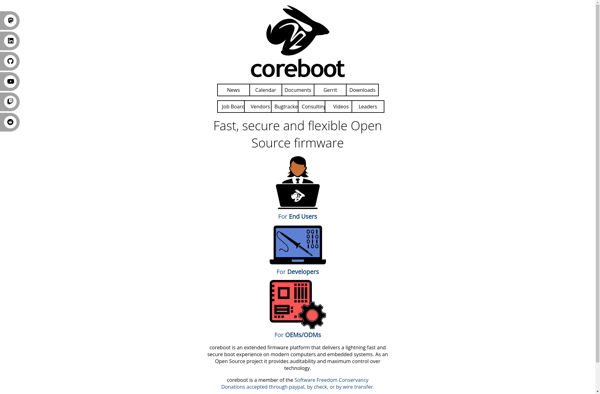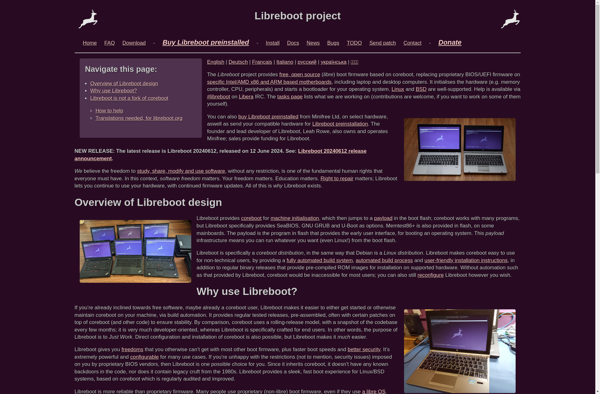SeaBios

SeaBios: Open Source 16-bit x86 BIOS
SeaBios provides low-level firmware needed to boot operating systems like Linux, Windows, BSD and others on x86 systems, offering a lightweight, compatible, and easy-to-configure solution.
What is SeaBios?
SeaBIOS is an open source implementation of a 16-bit x86 BIOS (Basic Input/Output System). It provides the core firmware code required to initialize the hardware and boot an operating system when a computer is powered on.
Unlike proprietary commercial BIOS solutions, SeaBIOS is designed to be small, lightweight, portable and compatible across various hardware. It is written in the C programming language and released under the GNU General Public License.
SeaBIOS essentially replaces the traditional BIOS found on x86-based PCs and provides the low-level firmware functions needed to initialize hardware like the CPU, memory, graphics card, storage devices and more during the booting process. It also allows booting from various devices like optical drives, USB drives and provides legacy BIOS compatibility.
A key capability SeaBIOS provides is booting various operating systems like Linux, Windows, BSD, etc on standard x86 PC hardware. It initializes the hardware to a state where it can then load bootloaders like GRUB, which can then boot various OSes. This makes it popular in virtualization platforms like QEMU and VirtualBox.
Compared to classic proprietary BIOS, SeaBIOS focuses on hardware compatibility and minimalism over flashy graphical interfaces. It's modular design makes it easy to configure for different needs. Overall, SeaBIOS fills a small but important firmware layer in the software stack and enables booting on commodity x86 hardware.
SeaBios Features
Features
- Provides a 16-bit x86 BIOS firmware implementation
- Supports booting operating systems like Linux, Windows, BSD and others on x86 systems
- Lightweight and small memory footprint
- Highly configurable and customizable BIOS options
- Supports standard BIOS interfaces like int10 for video and int13 for disks
- Written in C language for portability and ease of maintenance
- Actively developed and maintained open source project
Pricing
- Open Source
Pros
Cons
Official Links
Reviews & Ratings
Login to ReviewThe Best SeaBios Alternatives
Top System & Hardware and Firmware and other similar apps like SeaBios
Here are some alternatives to SeaBios:
Suggest an alternative ❐Coreboot

XTIDE Universal BIOS

Das U-Boot

Libreboot

Petitboot
